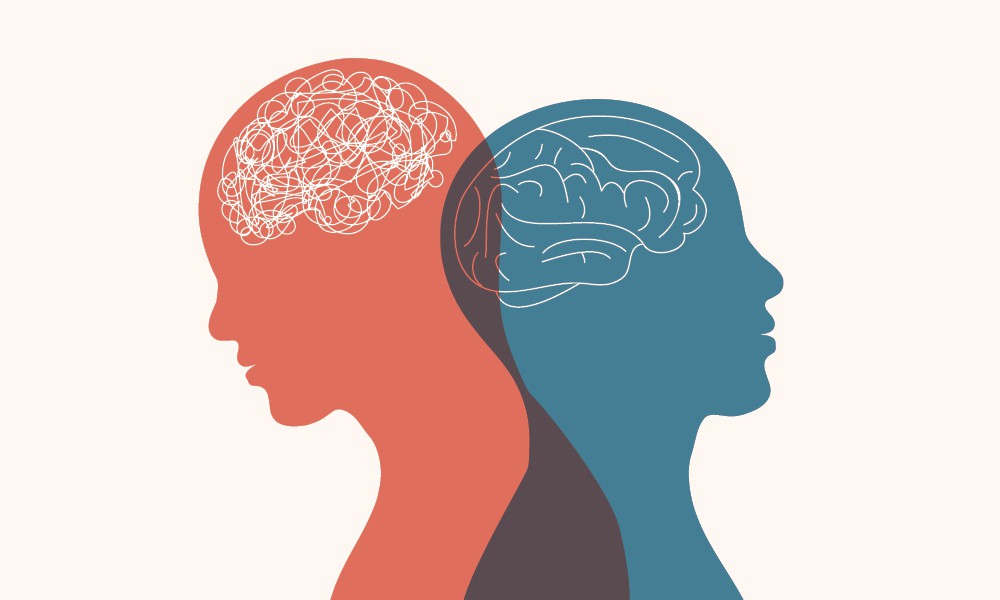Desi Vlahos is a lawyer, academic and two-time recipient of the Women in Law Award for Wellness Advocate of the Year as a mental health first-aider; the founder of Wellceum, a company that aims to help other organizations improve wellbeing, health and safety outcomes; and a Commissioner of the International Bar Association’s Wellbeing Commission.
Desi has dedicated her career to tackling poor mental health among lawyers globally. The Callover is focusing on mental health this month and how we can do more to increase mental wellbeing across the profession by speaking with Desi.
Why did you decide to study law and become a lawyer?
“So it all began from a very early age. I’ve always had a very strong sense of fairness and equity. I think it was very much ingrained in me from a very young child, and it always compelled me to follow in acting in alignment with my values. And I vividly recall as a six-year-old, seeing a classmate that was being teased at school and despite the fact that I wasn’t close to this particular student, it wasn’t that in fact that she was my friend. But I just couldn’t stand by and watch that it wasn’t my nature. And so, I mean, I intervened in that moment, and it very much really was something in my life that resonated with me. I also faced playground bullying myself at school.
“I was singled out for my very different name at the time, and it’s been slightly altered. But when you come from a very cultural background, I think the parents tend to think that some of these names are going to stick well and beautifully that they do now. But at the time it was a very sort of different it was a different period of time and for me, I obviously was singled out and I suppose it was these experiences that ignited my passion for justice and really what drove me to pursue law. And then I obviously I got my degree at Murdoch Uni in Western Australia and then I set off in Victoria and have been here ever since.”
And I understand you’ve now gone into legal academia with a focus on wellness, but can you explain to me a bit in a bit more detail the journey you’ve taken professionally to get there?
“I spent several years in private practice before taking a career breaks have children … I stayed engaged by studying literature. And then I went back and did a Graduate Diploma in Education, specialising in literature, in legal studies and drama. And then I took on various different roles teaching in secondary schools. But also at the time I set up my own practice as well. So I was doing sort of ad hoc roles in conveyancing and family law at the time.
“For me, I knew that teaching was very much in my heart…then I moved into teaching practical legal training. So I’ve been working for actual legal training for over seven years now and various different legal training and I love every day of it and get a lot of value out of raising. I call it raising the next generation of law students are really guiding them into the legal profession in a really sustainable fashion.”
What does Wellceum actually do?
“It provides assistance too and mainly I focus on professional services with a keen focus on the legal profession. So we help to integrate a wellbeing strategy to achieve the best possible psychological health and safety outcomes for the organization. So it focuses on that preventative piece. So we risk manage. So we actually look at the system, we look at the psychosocial hazards with a view to then looking at them and looking at the the assessing that risk as well.
“And then we look at then implementing various different strategies in place to, to audit to prevent or to mitigate that risk and then crafting the job in a way that’s going to then respond very carefully to the people training. It’s one that is facilitated for careful consultation with with them, with the people in the workplace, and really understanding intimately the context, because the context is everything, particularly in law firms and the context will differ from law firm to law firm, but also from practice area within the law firms as well.”
I understand you’re also a commissioner of the International Bar Association Wellbeing Commission. What does the Wellbeing Commission do?
“So the IBA established the Professional Wellbeing Commission in November 2022. So with that, its mandate was dedicated to enhancing the wellbeing of lawyers and legal profession professionals worldwide. So the key goals of it were to elevate wellbeing. So it has its own terms of reference, so to elevate wellbeing, so it aims to make wellbeing the top priority for the global legal community to foster collaboration.
“So co-ordinating efforts among global stakeholders to shift culture and mindset within the legal profession to raise awareness. So the Commission tackles and is charged with tackling stigma across discussing wellbeing and of course cultural differences, and then really thinking about how these conversations need to be approached in light of the cultural differences, highlighting diversity, so examining how wellbeing needs and responses to various different demographic groups and sharing best practices, so promoting and sharing effective policies and practices to support positive and sustainable wellbeing and then advocating for change.”
To your mind, what are some of the good practices that individual lawyers can implement?
“Obviously my focus really is the organisation because I take that focus. But but obviously when I was teaching practical legal training, I used to be at a different provider that I’m currently at now, like we would, we would teach various different forms of self care and now we frame it in that light of that shared responsibility. So we must never forget that we have a we have a personal responsibility, not only just because it’s good for us, but it also will safeguard us against potential misconduct that can eventually that could potentially eventuate in the brain and mind.
“Research Institute reports recording the Blues Report that exists in Australia. It really highlights that that, you know, 80 per cent of disciplinary matters have a mental health condition at their core. So whilst it’s not a it was an issue like so not exactly an illness, but something was manifesting there. So it’s very important to ensure that you are implementing obviously good forms of self-care.
“So those positive aspects of mental health are critical and I tend to say with all of my graduates when I’m teaching the course, that you have to schedule those things into your life. You have to ensure that you are engaging. So that positive emotion and it’s really interesting when you look at positive emotion, that positive emotion is often sort of on that seesaw with with stress and, you know, ensuring that you’re tempering the stress in your life by getting good, positive emotions.
“So your so that that obviously does foster good mental health. I think it’s also really important to for individuals to just to understand as well that their careers take a lot of perseverance. The requirement and we call it that it’s perseverance, it’s patience. And in order to in order to really succeed in your career and I think really understanding the importance of self-care, the importance of setting really necessary boundaries, and that’s something that we’re doing at the arbitrary.”
And on the employer side of things, what does best practice look like for an employer?
“I would say it’s really important from the outset that we educating leadership and I think informing them about the legal implications, the need for governance structures to manage psychosocial hazards. So really understanding it.
“And in Australia, I think we have a very clear well, we have a very clear understanding of what it is now. It’s on the lips of of improvement. But at the moment, yes, it is. I think it’s back in the day. So the word psychosocial has it in people. So what are you talking about? But also it’s about understanding the potential reputational damage that can ensue as a result.
“Now. And you can start to see the moment that that particular we see more and more prosecutions, that that will be the case with there. There is potential for reputational damage and then in the same regard. So it’s not just about educating senior leadership, it’s about securing leadership commitments. So getting leadership support for implementing a system to eliminate psychosocial hazards.”
“So really revising policies to include the management of psychosocial hazards and performance and and remuneration criteria and then from there making sure that we’re supporting and training the leaders. So providing education and resources for leaders to manage those psychosocial hazards and then allow gradual changes in compensation and performance expectations. And then I think it’s about just educating the whole workforce.”
Why is it important to society that lawyers are well?
“I know that in our society the wellbeing of lawyers is crucial not just for their personal health, but obviously the functioning of the entire legal system. I think we spoke about that earlier as well, and that’s why it is so critical that even our judiciary is is functioning at their complete optimum. And I mean, I believe with a well-functioning judiciary and legal profession, that it’s critical to upholding justice and maintaining public trust.
“When lawyers are well, they’re better equipped to handle the complexities of legal practice, sound decisions, and advocate effectively for their clients. And that directly impacts the quality of justice again and the overall health of our legal system. And I know that’s that’s been a lot of the driving work within the judiciary. So a real focus on that to ensure that they are functioning at their optimum.
“And more broadly, I guess, you know, it’s I mean, obviously we are representing clients. We need to be well for our clients so that we can make wise decisions for our clients. I think I mentioned before in terms of the recording the Blues Report and that connection with disciplinary matters and how 80% of disciplinary matters they discovered had some connection with a mental health issue of sorts.
“And you know, and sometimes what that does is it really highlights the fact that there are, you know, there are things going on for that individual that they probably weren’t even aware of. So, you know, it is very important to ensure that, you know, a good lawyer is going to be a well lawyer and one that is really functioning at their optimum.
“So it’s not just about looking after yourself and putting in place all of those mechanisms that are going to safeguard you. But it’s also about creating safe systems of work, ones that are going to foster a thriving individual in the workplace. So then that decisions that can be made and representation and access to justice for their clients is going to be served as best as possible.”
Listen to this episode of The Callover.













Share this article